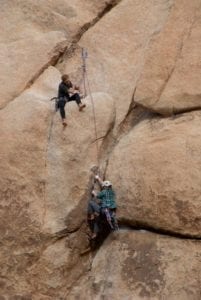
Director of Science Policy
American Society of Human Genetics
ASHG: How can trainees gain experience in your field while doing research? What steps are necessary for trainees to get involved in your field?
Dr. Scholes: There are opportunities available [in the field of science policy] to you if you’re willing to seek them out and volunteer some hours of your time. Look for them at your institution. Does it have a science policy group that invites speakers to give presentations on policy issues?If so, join it. If not, start one.
Or, get involved in institutional activities focusing on early-career scientist issues, such as the postdoctoral association. Also, see if there are any opportunities in your institution’s government relations office. You should also look outside your institution, such as volunteering in the office of a member of Congress or state representative, or joining a national organization such as the National Postdoctoral Association.
If you are committed to a career in science policy, you will greatly benefit from a full-time fellowship or paid internship that allows you to work for a period of time in a policy office. ASHG cosponsors a 16-month policy fellowship with the National Human Genome Research Institute (NHGRI) where the fellow spends time in the U.S. Congress, at ASHG, and at NHGRI. Fellowship applications are accepted between January-April each year! If you are not eligible for the fellowship, you should take a look at NHGRI’s list of other fellowship and internship opportunities.
If you want to get into policy, experience outside of the lab is so important. It will allow you to figure out what aspects of science policy you enjoy the most, and where your talents lie. It will help you network with people who can advise you or connect you with a job opportunity. And, when you do apply for that job, it will serve to demonstrate your interests and abilities in policy to the employer.
ASHG: If you could go back to when you were a trainee, what is one piece of advice you would give yourself for your current career?
Dr. Scholes: I would tell myself my answer to the previous question! I would also encourage myself to find out all the different types of science policy jobs that are out there, and to think about which are most appealing.
There are science policy jobs at the NIH, in Congress, at the National Academy of Sciences, at numerous patient advocacy groups and professional societies, and so on. I was not aware of all these options when I was a trainee.
Lastly, I would tell myself that, for applying for many policy positions, one’s publication record is not nearly as important as it is in academia. Beyond your educational qualifications, prospective employers are looking for policy experience, and that the sooner you gain that experience the better.
ASHG: Can you describe your transition from trainee to working professional? How did you land your first “real” job?
Dr. Scholes: I transitioned from trainee to policy professional via the ASHG/NHGRI policy fellowship that I mentioned. Through the fellowship, I was able to gain policy experience that, combined with my scientific training, gave me the qualifications I needed to be a competitive candidate for policy positions.
My first ‘real’ job was as a government relations manager at the American Heart Association, which involved advocating for the passage of legislation by Congress on issues such as genetic discrimination. Through the fellowship, I had worked in Congress, and specifically had worked on a bill to prohibit genetic discrimination. I landed the job because I had this experience.
Dr. Scholes’ mentors helped make the lab-to-policy office transition smooth

ASHG: How did your mentor impact your professional development? What valuable lessons/skills did you learn from them?
Dr. Scholes: I have to mention two mentors who were very valuable to me as I transitioned from the lab to a career in science policy, namely Tim Leshan and Jo Boughman.
At the time when I was making the transition, Tim was the chief of the Policy and Program Analysis Branch at NHGRI, and Jo was ASHG’s Executive Vice President. Together, they were the mentors of the ASHG/NHGRI Genetics and Public Policy Fellowship when I did that fellowship.
[Tim and Jo] were invaluable to me because of their policy experience and knowledge at a time when I was starting in my career in science policy. They taught me how to be successful working in a policy office, where the work environment is so different from that of a lab. They connected me with all the key players in the genetics policy world. And, they provided me with wonderful guidance when I was looking to land my first permanent science policy position.
It’s been a decade since I completed the fellowship, and they have moved on from NHGRI and ASHG, but I still turn to Tim and Jo for advice.
Want more interviews? Join the ASHG Trainee Forum to keep up with new ones!
